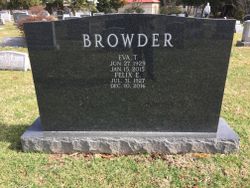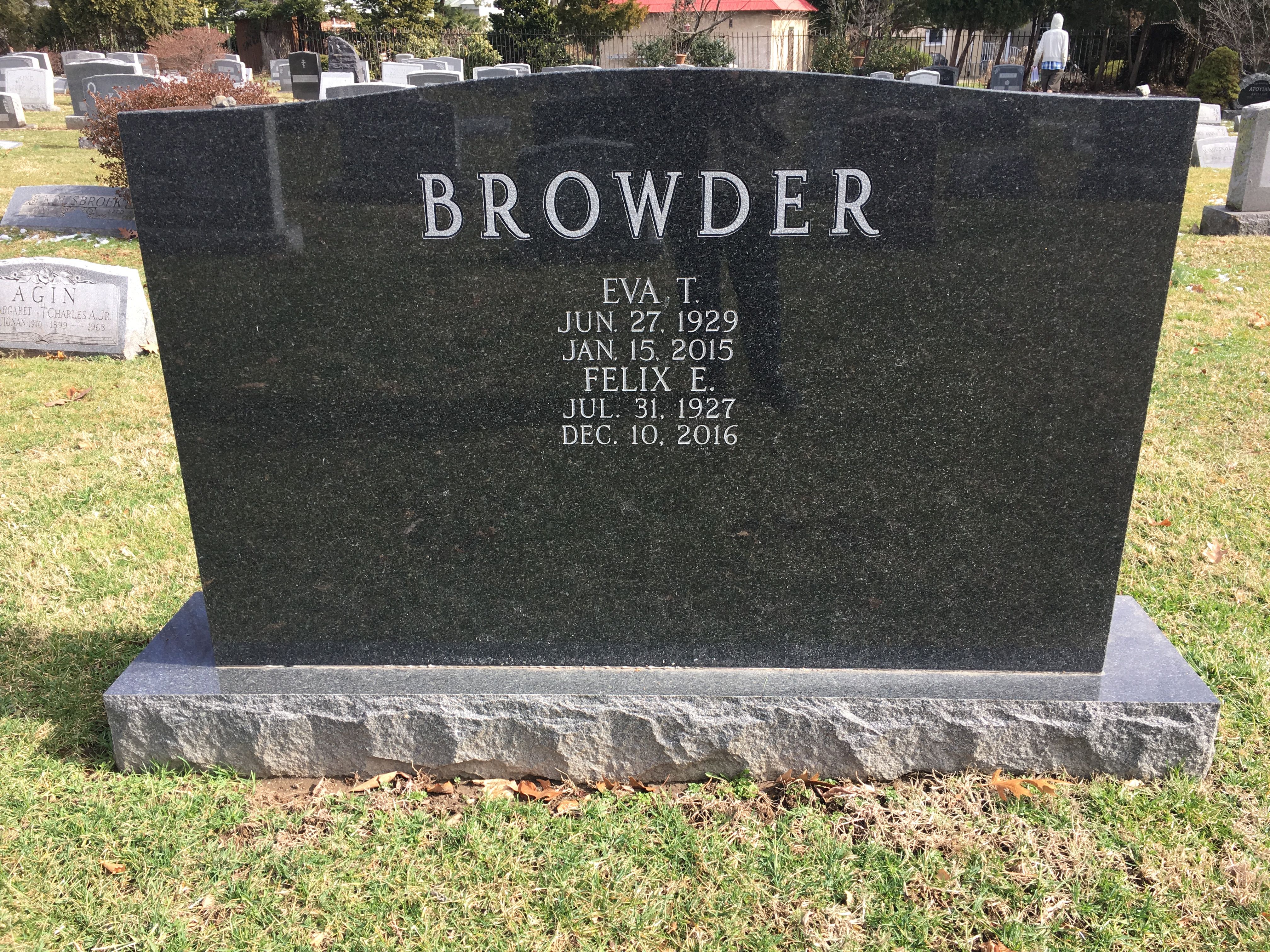In 1953, when Browder was twenty-five and working at the Institute for Advanced Study, in Princeton, New Jersey, he was drafted into the Army. I.A.S.'s director at the time, the renowned physicist Robert Oppenheimer, had overseen the development of the first atom bombs, but now he faced pressure himself as a suspected Communist sympathizer. He declined to sign what would ordinarily have been a routine deferment letter for Browder. With the Korean War nearing armistice, Browder was sent from Fort Dix, New Jersey, to a military research facility at nearby Fort Monmouth, then pinballed back again as a potential national-security risk. Both he and his brother Andrew, who had also been drafted, were put on trial by the Army, but both were acquitted because of lack of evidence.
For the remainder of his service, Browder was assigned to pump gas at Fort Bragg, North Carolina.
Browder was released from the Army in 1955, and he got his first big break in academia that same year, with an assistant professorship at Brandeis. He moved to Yale the following year and then on to the University of Chicago, in 1963. His specialty was nonlinear partial differential equations, which arise in geometry and other areas of mathematics and are essential to the modelling of motion and change in a number of real-world settings—traffic, the economy, Earth's climate, ecosystems, biological processes. "The world is nonlinear," Carlos Kenig, who studied under Browder and is now a distinguished professor at Chicago, told me. "This is the kind of thing we need to understand." When Browder entered the field, individual problems were attacked on an ad-hoc basis, so he worked on developing abstract theories that could be applied to a broad range of problems. "His particular genius was in finding the right formulation and the right general form of a principle," Kenig said.
Browder was also known as a generous colleague. "Felix was a force," Robert Zimmer, the president of the University of Chicago and a longtime member of its math department, told me. In the late nineteen-seventies, Zimmer said, anti-Semitism was rampant in Soviet institutions—Jewish mathematicians were unable to attend international meetings and talented students were denied doctoral degrees—and the recent memory of similar, if less virulent, strains of discrimination in U.S. math departments, including at Chicago, hung in the air. One week, at the math department's regular colloquium, where about fifty faculty and graduate students gathered to discuss the issue, Zimmer recalled that Browder, then in his second term as the department chair, showed a remarkable "sense of moral clarity" and a willingness to speak out. "You want the leader to stand up and say what the values are, and that's what he did," Zimmer said.
Browder left Chicago in 1986 for the newly created position of vice-president for research at Rutgers. There, he recruited top talent, including, in 1989, one of the most influential mathematicians of the twentieth century, the Soviet-born Israel Gelfand. A decade later, Browder was awarded the National Medal of Science by President Bill Clinton, for "his pioneering work in nonlinear functional analysis and its applications to partial differential equations, and for leadership in the scientific community." According to his family, Browder was particularly proud of this honor. "He went from a guy who was shunned from every university because of his father's political leanings to being awarded this at the White House," Bill Browder said.
In an interview from the same year, published in the Notices of the American Mathematical Society—an organization of which he'd just become president—Browder lamented the miserable job scene facing young mathematicians, "even gifted ones." Too many were being lost, he said, to more abundant and lucrative jobs in finance (His son Bill, who ran a multibillion-dollar hedge fund and whose name frequently appeared in financial publications, said, "The moment he finally decided I'd done something worthy was when Harvard University wrote a case study about me.") Browder also warned that mathematics was becoming too specialized and siloed, such that experts in different subfields, not to mention in different sciences, no longer shared a common language or mutual understanding. At the time, he claimed, there was not a single math department in the United States that required students to learn the history of mathematics. "Without a sense of where you come from, you have no sense of where you're going," he told his interviewer. "The question of perspective depends on one's sense of the past."
In 1953, when Browder was twenty-five and working at the Institute for Advanced Study, in Princeton, New Jersey, he was drafted into the Army. I.A.S.'s director at the time, the renowned physicist Robert Oppenheimer, had overseen the development of the first atom bombs, but now he faced pressure himself as a suspected Communist sympathizer. He declined to sign what would ordinarily have been a routine deferment letter for Browder. With the Korean War nearing armistice, Browder was sent from Fort Dix, New Jersey, to a military research facility at nearby Fort Monmouth, then pinballed back again as a potential national-security risk. Both he and his brother Andrew, who had also been drafted, were put on trial by the Army, but both were acquitted because of lack of evidence.
For the remainder of his service, Browder was assigned to pump gas at Fort Bragg, North Carolina.
Browder was released from the Army in 1955, and he got his first big break in academia that same year, with an assistant professorship at Brandeis. He moved to Yale the following year and then on to the University of Chicago, in 1963. His specialty was nonlinear partial differential equations, which arise in geometry and other areas of mathematics and are essential to the modelling of motion and change in a number of real-world settings—traffic, the economy, Earth's climate, ecosystems, biological processes. "The world is nonlinear," Carlos Kenig, who studied under Browder and is now a distinguished professor at Chicago, told me. "This is the kind of thing we need to understand." When Browder entered the field, individual problems were attacked on an ad-hoc basis, so he worked on developing abstract theories that could be applied to a broad range of problems. "His particular genius was in finding the right formulation and the right general form of a principle," Kenig said.
Browder was also known as a generous colleague. "Felix was a force," Robert Zimmer, the president of the University of Chicago and a longtime member of its math department, told me. In the late nineteen-seventies, Zimmer said, anti-Semitism was rampant in Soviet institutions—Jewish mathematicians were unable to attend international meetings and talented students were denied doctoral degrees—and the recent memory of similar, if less virulent, strains of discrimination in U.S. math departments, including at Chicago, hung in the air. One week, at the math department's regular colloquium, where about fifty faculty and graduate students gathered to discuss the issue, Zimmer recalled that Browder, then in his second term as the department chair, showed a remarkable "sense of moral clarity" and a willingness to speak out. "You want the leader to stand up and say what the values are, and that's what he did," Zimmer said.
Browder left Chicago in 1986 for the newly created position of vice-president for research at Rutgers. There, he recruited top talent, including, in 1989, one of the most influential mathematicians of the twentieth century, the Soviet-born Israel Gelfand. A decade later, Browder was awarded the National Medal of Science by President Bill Clinton, for "his pioneering work in nonlinear functional analysis and its applications to partial differential equations, and for leadership in the scientific community." According to his family, Browder was particularly proud of this honor. "He went from a guy who was shunned from every university because of his father's political leanings to being awarded this at the White House," Bill Browder said.
In an interview from the same year, published in the Notices of the American Mathematical Society—an organization of which he'd just become president—Browder lamented the miserable job scene facing young mathematicians, "even gifted ones." Too many were being lost, he said, to more abundant and lucrative jobs in finance (His son Bill, who ran a multibillion-dollar hedge fund and whose name frequently appeared in financial publications, said, "The moment he finally decided I'd done something worthy was when Harvard University wrote a case study about me.") Browder also warned that mathematics was becoming too specialized and siloed, such that experts in different subfields, not to mention in different sciences, no longer shared a common language or mutual understanding. At the time, he claimed, there was not a single math department in the United States that required students to learn the history of mathematics. "Without a sense of where you come from, you have no sense of where you're going," he told his interviewer. "The question of perspective depends on one's sense of the past."
Bio by: AllThings GO
Family Members
Advertisement
See more Browder memorials in:
Records on Ancestry
Sponsored by Ancestry
Advertisement






